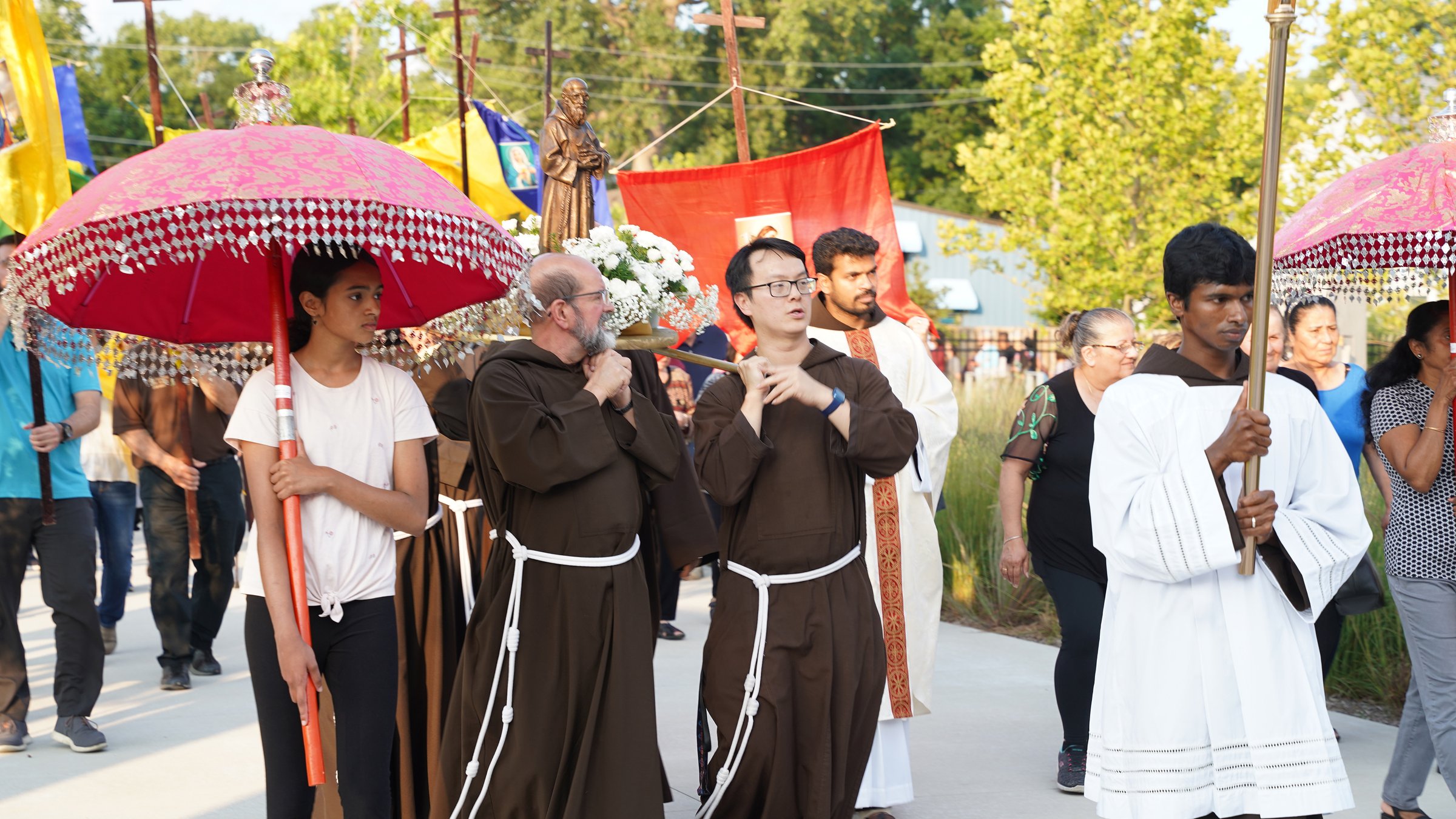Feast day celebration features first-ever procession through the streets of Detroit, reflection on friar's humility and virtues
DETROIT — Blessed Solanus Casey serves as a role model for offering disappointments up to God and bearing wrongs patiently, Bishop Robert J. McClory of Gary, Ind., told the faithful gathered at St. Bonaventure Monastery to celebrate the porter's feast day.
Bishop McClory, a Detroit native whose devotion to Blessed Solanus came from his parents, Third Order Secular Franciscans who met at St. Bonaventure, celebrated the feast day Mass on July 30 in an overflowing chapel on a warm summer evening.
Bishop McClory recounted how, as a seminarian studying in Rome, he came across testimony about the sainthood cause of Fr. Solanus — who at the time wasn't even declared "venerable" — while visiting former Detroit archbishop Cardinal Edmund C. Szoka, who at the time was a member of the Congregation for the Causes of Saints.
Bishop McClory read from the testimony of Fr. Benedict Groeschel, CFR, who for a while lived with Fr. Solanus Casey and noted an unusual eating habit that served as a glimpse into his spiritual life.
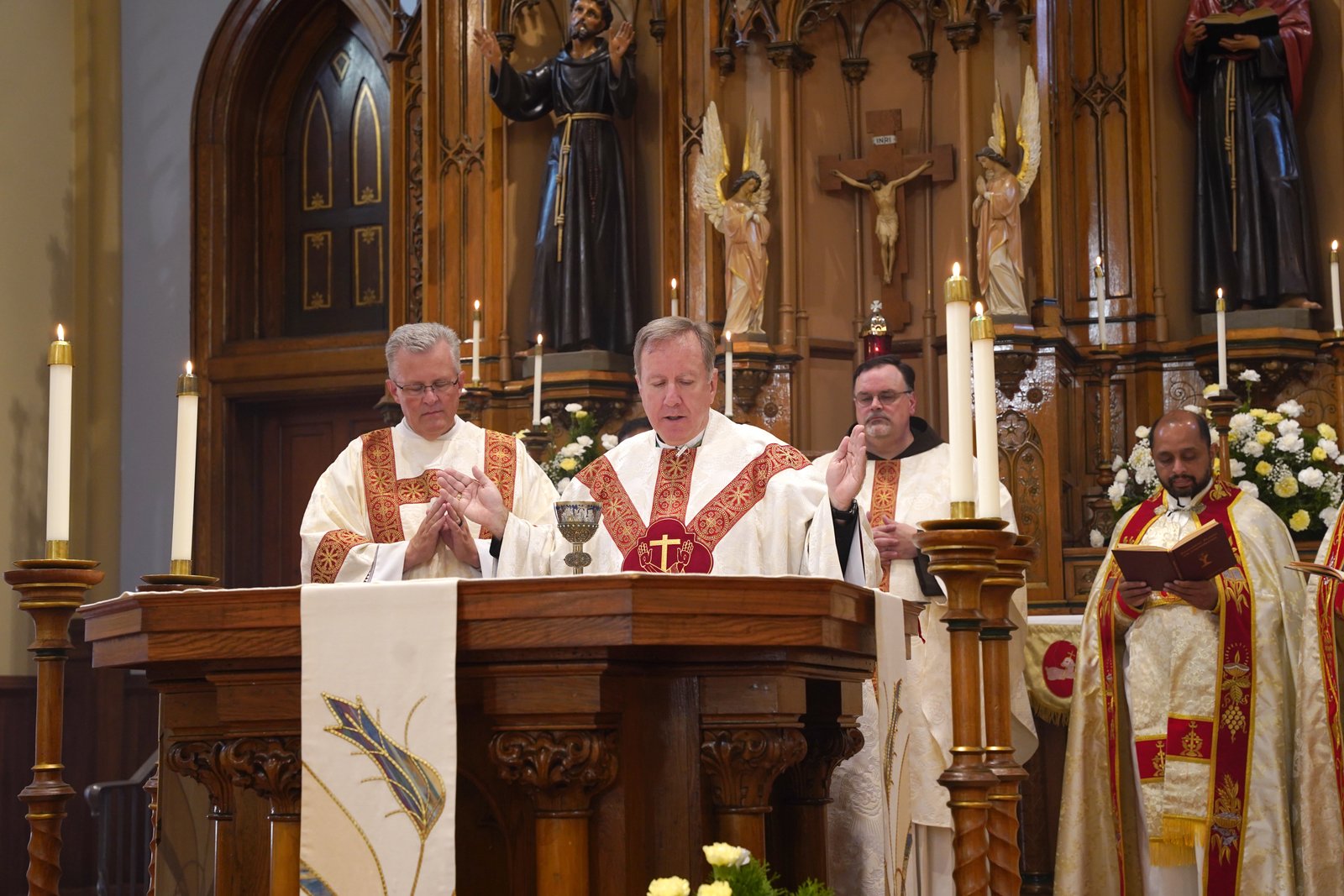
“He had this interesting habit — it was a form of penance — that whatever food was served to him, he would take it and mash it up all together into one blob and eat it,” Bishop McClory said in his homily. “It could be salad, could be ice cream, bread, butter, or gravy. He’d mix it all up and eat it. It was an interesting behavior. It was a simple form of self-denial, his way of refraining from something he might otherwise enjoy and offering it up to God.”
The anecdote was one of many Bishop McClory and others shared about Blessed Solanus in the days leading up to the Detroit friar's feast day — including the debut of a new documentary featuring three people who knew Blessed Solanus well.
This year’s feast day celebration included a procession with a statue and relic of Blessed Solanus around the grounds of St. Bonaventure Monastery, as faithful from across the Archdiocese of Detroit asked for Blessed Solanus’ intercession and prayed for his canonization.
The procession after Mass passed by the confessionals at St. Bonaventure, where the causeway is adorned with tiles celebrating the corporal and spiritual works of mercy, an appropriate examination of conscience, Bishop McClory said, to remind the faithful all the times they failed to live up to what God is asking them to do.
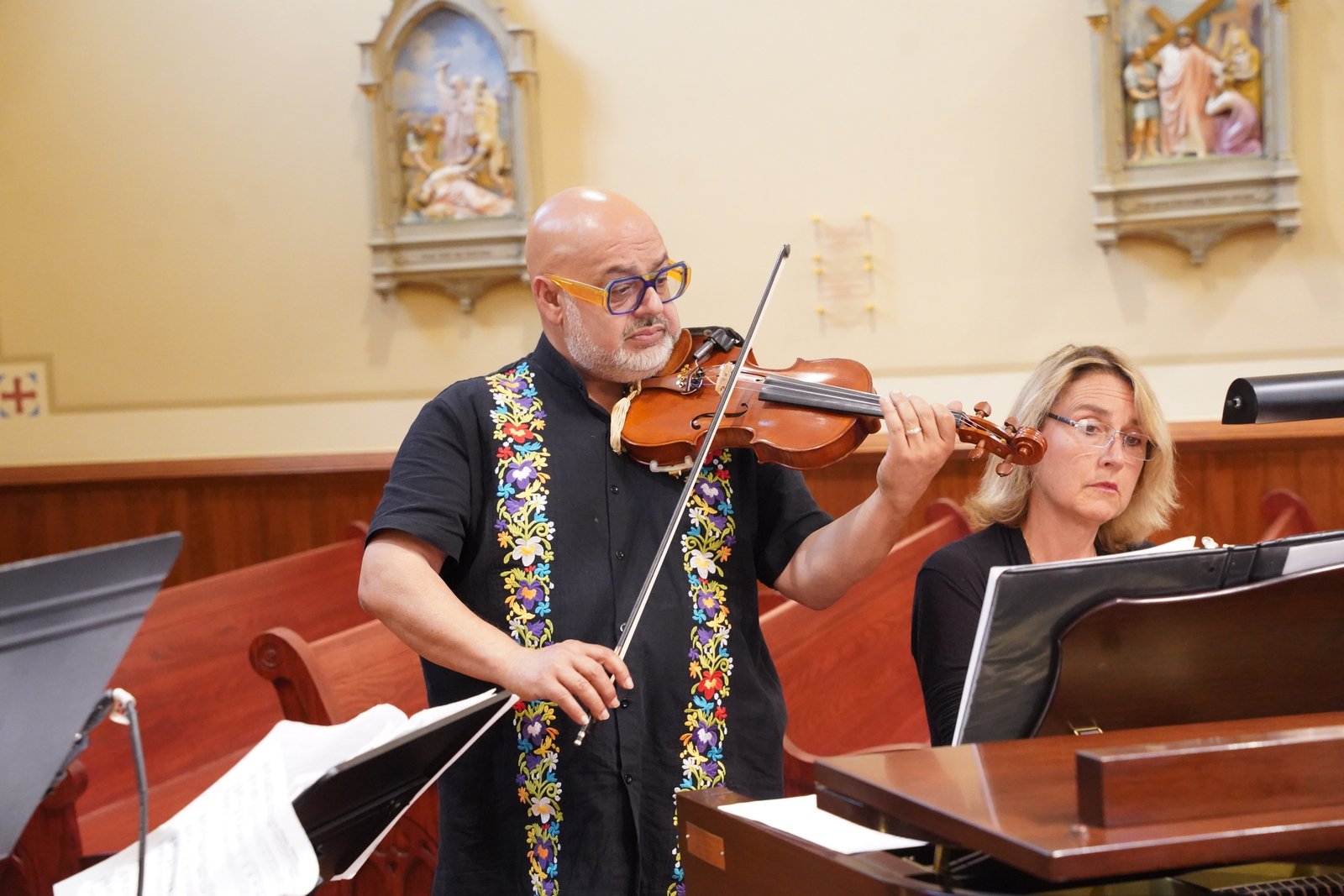
“It’s a little ironic to me that (one of) the great blessings of the monastery here is the offering of the sacrament of penance, because Blessed Solanus, although learned and wise, was not given the faculty to hear confession,” Bishop McClory said. “But what he did offer was making this a place that ministers to the spiritual and physical needs of the people. That is the legacy of Solanus Casey, a legacy where he would lead people to the sacraments, to confessions, because he knew the people who were coming to him needed more than physical nourishment; they needed spiritual nourishment, too.”
Bishop McClory noted how Blessed Solanus never asked the people who came to him for counseling to do great and mighty things that would require "super strength," but to offer what they could to God with true humility.
“Pope Francis says we’re called to be witnesses of mercy, but not to think of it as some great effort or superhuman interaction,” Bishop McClory said. “The Lord shows us a very simple path made by small actions that have great value in His eyes.”
The feast day — the seventh since Blessed Solanus was beatified in 2017 — allowed pilgrims to reflect on lessons from Blessed Solanus’ life, such as how he was excused from seminary in Milwaukee for poor grades or being ordained as a simplex priest unable to preach or hear confessions. Blessed Solanus showed a true meekness, which Bishop McClory described as “strength under control.”
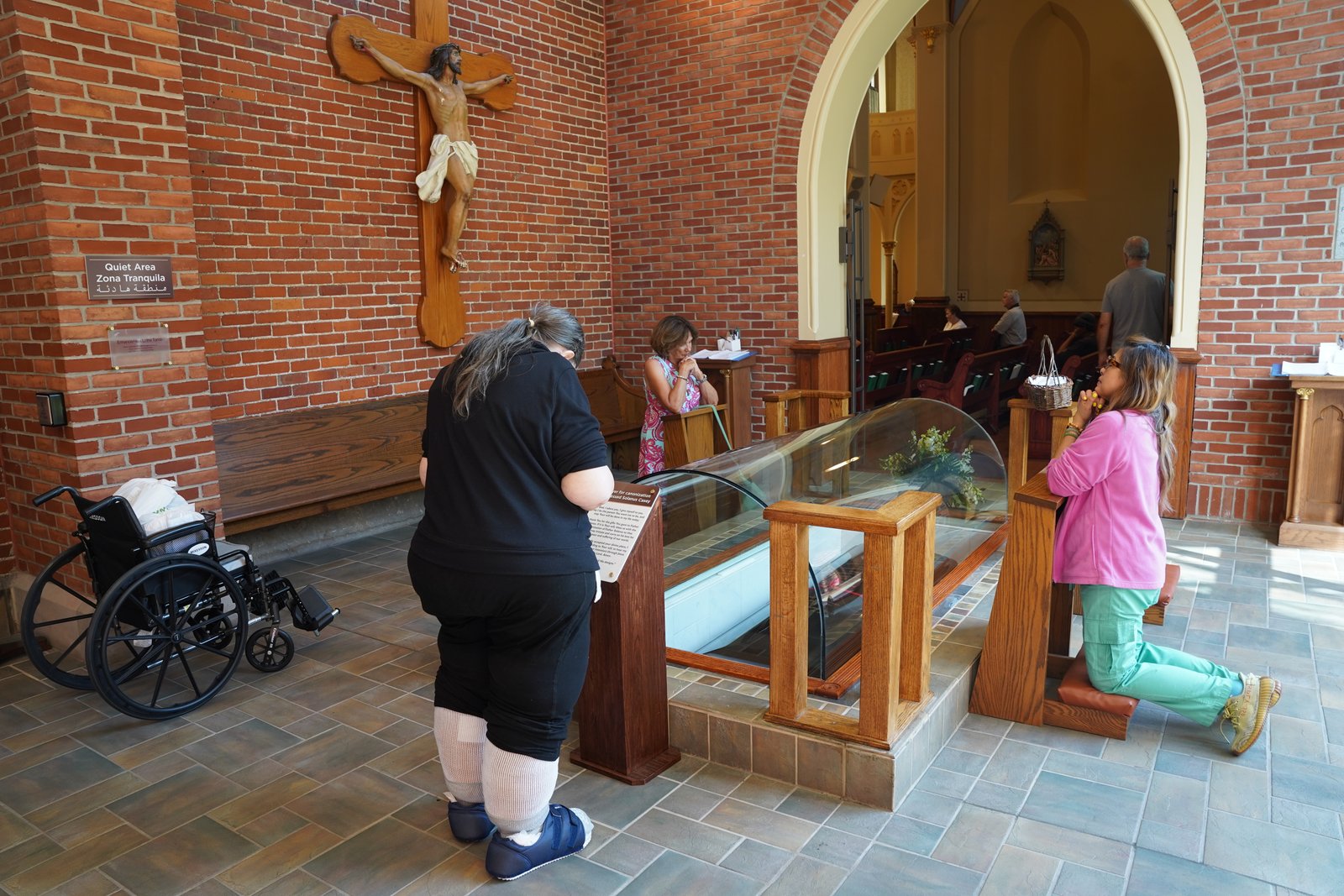
Blessed Solanus’ life exemplified the corporal and spiritual works of mercy, perhaps none more than “bearing wrongs patiently,” a lesson especially appropriate in a time of instant communication and outrage culture, Bishop McClory said.
“Many times we face a choice if there is a slight that has been directed to us, something that really gets under our skin,” Bishop McClory said. “You can choose to let that eat you up, or you can say, 'Lord, I need patience right now.’ It’s in those times when we can turn to God, and, as Blessed Solanus would say, ‘Thank God ahead of time,’ as he would when he had his meal. He would thank God for whatever was vexing him.”
It is through his meekness, through bearing wrongs and setbacks patiently, that Blessed Solanus found the face of God in the poor and downtrodden he came across while serving as a porter at the monastery, a position most priests wouldn’t think much of, but one Blessed Solanus undertook with humility, Bishop McClory said.
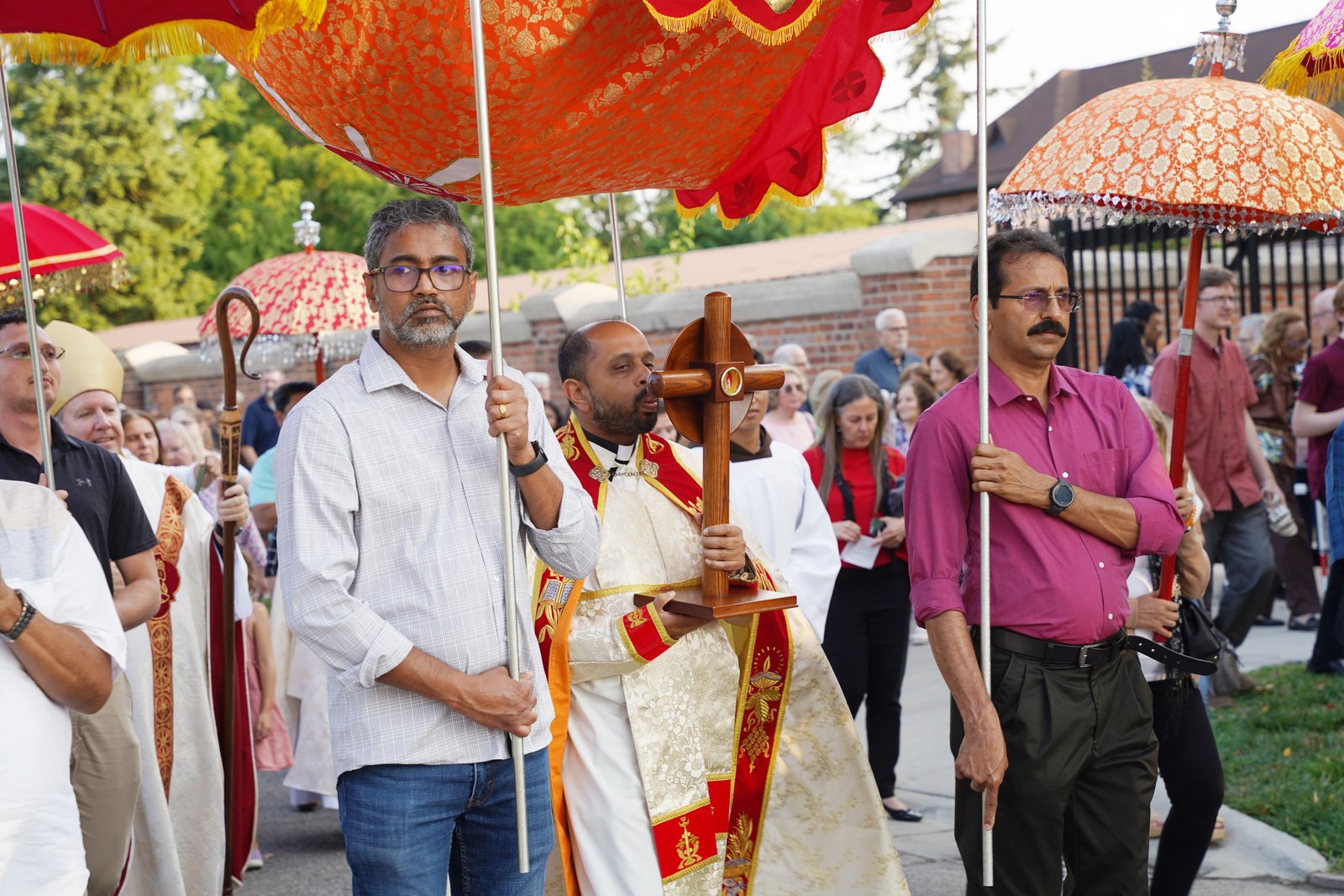
“A beautiful thing about the witness of Blessed Solanus is how he (mends) the artificial separation between the spiritual and corporal works of mercy; it’s all together,” Bishop McClory said. “People come here to be fed, to be cared for, to be loved, to get a second chance to come here and have their material needs met, and it is in harmony with that call to love the spirit and the soul of the person. Solanus showed us that in caring for the material needs, we see to their spiritual needs.”
Before the congregation processed out of the chapel and into the streets, accompanied by drummers from St. Thomas Syro-Malabar Catholic Church in Southfield and others carrying banners dedicated to Blessed Solanus and other holy men and women, Bishop McClory issued a simple challenge: to find a way, a simple way, to emulated Blessed Solanus Casey in one's life.
“Today is an opportunity for us to say, 'Whatever situation I’m in, I’m going to thank God ahead of time,'” Bishop McClory said. “'I’m going to praise Him now for the answer to my prayer, even though I don’t know what it will be. I’m going to say, ‘Blessed be God in all His designs.’"
Copy Permalink
Solanus Casey Feast days


